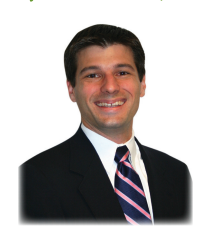By Michael Scrudato, CPCU - Munich Reinsurance America, Inc.

Road safety is an almost silent epidemic facing our nation. The latest estimate by the National Safety Council (NSC) shows that approximately 40,000 people were killed on U.S. roads last year, this equates to 100 individuals being killed every day. While other public safety events such as hurricanes and plane crashes may be talked about for months and even years, most vehicle crashes are barely noticed beyond the people directly impacted.
There are billions of dollars funding1 the opportunities presented by autonomous vehicles (AVs) and the technology is improving rapidly.
Just 10 years ago, the 2007 DARPA 2 Urban Challenge saw early autonomous vehicles slowly maneuvering through the former Georgia Air Force Base. Today, we have selfdriving cars and trucks navigating streets in many states across the country. These vehicles have many benefits, including a potential solution for our road safety crisis.
Highly publicized AV efforts by companies such as Waymo (Google’s AV subsidiary) throughout Arizona and in Atlanta, Georgia, and General Motors in San Francisco have garnered many headlines. However, the state of Florida has become one of the leading states in the development and deployment of AVs.
Florida is attractive not only for its climate and infrastructure, but also for the legislature’s proactive approach to regulating AVs by passing legislation that mirrors the rapid pace of evolving technology.
“No other technology has the potential to be as transformative to Floridians as artificial intelligence (AI), with autonomous vehicles being one of the earliest examples of the disruption caused by AI,” says Florida State Senator Jeff Brandes, the sponsor of Florida’s autonomous vehicle legislation. “The opportunities of AV to be transformative to communities and business models should not be understated. Florida continues to create an environment that is open to these multifaceted shifts offered by AV.”
Florida AV projects include deployments in planned communities such as Babcock Ranch and The Villages, as well as plans to integrate these vehicles into public transit systems in Tampa and Jacksonville.
Beyond these projects, Florida is also the home of one of the largest autonomous vehicle conferences in the nation – the Florida Automated Vehicle Summit. The event has been held since 2013; and this year will take place on November 27-28, 2018 in Tampa.
“Florida offers the rich mix of opportunities to advance autonomous vehicle adoption,” states Corey Clothier, Principal at Me3, an AV consultancy firm that helps communities and public entities navigate the growing opportunities for AV deployment.
“I have been involved with projects in Florida communities since 2013, and the most common question I still get is, “where do we start?” The answer is simple – start with a plan.” Clothier goes on to say, “It is important to understand the strengths and weaknesses of this new mobility technology and match it to your needs; let’s look for real problems to solve.”
These problems include not only road safety improvements, but also accessibility, vehicle utilization and congestion. There are many potential use cases and vehicle types that have to be designed based on the opportunities for different communities.
While AVs present a glimpse into the future, there are other technology advances available to public entities today that can help improve their safety records. Advanced driver assistance systems (ADAS) such as forward collision warning, lane departure warning and automated emergency braking are increasingly being offered in new vehicles.
Early Insurance Institute for Highway Safety testing has demonstrated these technologies can reduce crash frequency. However, many drivers are still unaware their vehicles have this technology and/or how to use it. To help address this, the NSC has designed MyCarDoesWhat.org to help educate drivers on new vehicle safety technologies designed to prevent crashes.
Beyond this new vehicle technology, there are also after-market solutions that can help improve fleet safety in vehicles already on the road. Unfortunately, many fleets or consumers often are reluctant to invest in these technologies because it can be difficult to determine the return on investment. Despite the number of “accidents” that occur, human nature often precludes us from thinking that this will happen to us, or this is something that can be prevented. As the saying goes, “accidents happen.”
However, “accidents” are not always really accidents. By determining how, where and why these crashes happen, many of them have the potential to be prevented through various types of ADAS solutions and data analytics used to design customized driver training programs.
Munich Reinsurance America, Inc. (Munich Re) is working with Preferred to identify the causes of accidents and determine an appropriate technology solution to address them. Munich Re’s LossDetect TM tool analyzes loss data and identifies potential preventative technology solutions to reduce auto crashes. The result of this analysis is an effective method to help convince various stakeholders to invest in these potential life-saving technologies.
From the advances in fleet safety technology and the potential deployment of autonomous vehicles, it is important for communities to stay current and incorporate new technologies to mitigate auto losses. By planning ahead and adapting to the “future of mobility,” communities have the ability to increase road safety for their residents today and into the future.
I will be presenting more detailed information on these exciting mobility trends at the Preferred Member Education Day and am happy to answer questions. I look forward to seeing you there.
1 Brookings (The Brookings Institution), “Gauging Investment in Self-Driving Cars,” 10/16/17
2 Defense Advanced Research Projects Agency, 2007, http://archive.darpa.mil/grandchallenge/
Mike Scrudato, Senior Vice President and Strategic Innovation Leader, Mobility Domain, Munich Reinsurance America, Inc., can be reached at [email protected].
